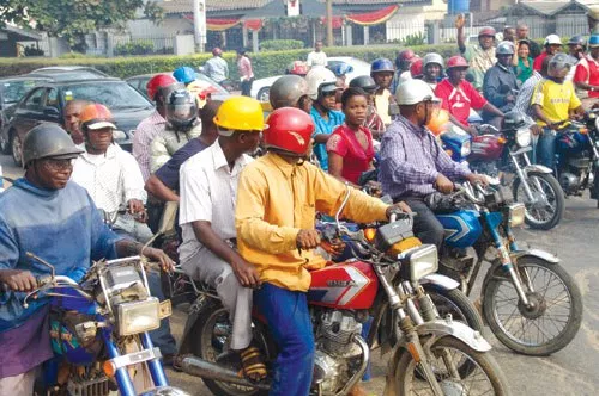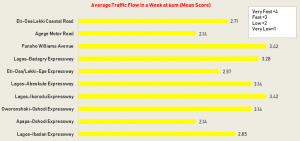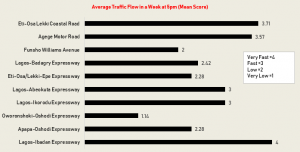
The movement of people and goods is one of the fundamentals that ensure economic growth and development. People need to be at different places at different times and applying various goods within transaction activities that enable them to create and capture value. This movement has been captured under different economic and social terms. In the business world, for instance, it has been dubbed recently as mobility as a service (MaaS), which allows the use of car, bike, boat among others by transportation service providers for the movement of people and goods.
The bike segment of the MaaS is being used mostly in the emerging economies, recent analyses reveal. Existing statistics indicates that the global ride hailing services market was $34.45 billion in 2018. This growth did not dip in 2019, it rather improved significantly as governments in many emerging economies struggled to provide enabling public transport systems. The growing urban population has also been fingered as a key factor contributing to the growth of the segment.
Like other developing markets, Nigeria is not an exemption of the challenges being faced by people and businesses in commuting and transporting their materials for production and consumption purposes, most importantly in Lagos, the commercial centre of the country and a key market for countries in West Africa region. From the administration of Senator Bola Ahmed Tinubu to Barrister Babatunde Raji Fashola, the idea has been to make Lagos at par with other emerging megacities in the world. This was the single reason for initiating and executing policies and programmes across the sectors during their administrations.
Register for Tekedia Mini-MBA edition 19 (Feb 9 – May 2, 2026): big discounts for early bird.
Tekedia AI in Business Masterclass opens registrations.
Join Tekedia Capital Syndicate and co-invest in great global startups.
Register for Tekedia AI Lab: From Technical Design to Deployment (next edition begins Jan 24 2026).
Some of the policies and programmes impacted players in the informal segment of the transportation sector negatively, especially Okada and Danfo service providers, before the emergence of Max.ng, Gokada, Opay among others that came with the formality strategy. Existing information shows that the administration of Akinwunmi Ambode seemed did not bother about banning the providers, which was considered necessary by his predecessor (Babatunde Raji Fashola).
Joining the Babatunde Raji Fashola, Mr Babajide Sanwo-Olu announced the proscription of Okada and tricycle riders’ operations in six local governments, nine local council development areas, 10 major highways and 40 bridges and flyovers across the state. According to the government, operators need to be restricted and banned because of the increase in road accidents and traffic linked to their activities in the last few years. With the proscription, there is no doubt the Lagos market of the Nigerian bike-hailing sector is experiencing significant down considering the number of people relying on the segment for livelihood.
As at the time of writing this analysis, counternarratives and alternative narratives rage on the faith of the riders and owners of the businesses. Despite the narratives, it appears that government is not ready to change its decision. The government recently hinted that nobody has been licensed to run Okada services in the State. In the midst of the narratives, our analyst questioned existing data and those mined and analysed by us.
What Statistics Says?
Before the ban, individuals and experts, including academics have indicated that commercial motorcycles and tricycles contributed to the number of road accidents recorded in the State in the last few years. Our checks show that their position and government’s keen observation of the operators led to the full implementation of the Lagos State Road Traffic Law of 2012, which significantly contributed to the reduction of accidents being caused by Okada operators. The implementation, according to a Surgeon, reduced motorcycle accidents in 2012.
A study also found that a significant decline in motorcyclist fatalities following the implementation. “Motorcyclist fatalities fell by an average of 76% over the study period. Over 55% of the fatalities were recorded in five health facilities, located in an area of high road network density.” Our analysis, using real time data, equally suggests positive and negative connection between the Law and public interest in accident, traffic and Okada. We discovered that one percent of interest in the Lagos Traffic Law 2012 increased interest in accident by 15.5%, suggesting people’s knowledge seeking about the extent to which the Law could be effective in reducing accidents across the State. It was a 1.5% increase for the interest in traffic, while negative connection (-8.5%) of the Law with Okada shows that one percent of public interest in the Law reduced interest in Okada by 8.5%.
In 2015, the Lagos State Government, through a Commissioner, reported increase in the number of accidents involving commercial motorcyclists by 34% in four months. “We have started witnessing an increase since January 2015, both in reported death cases and injuries. Specifically, injuries in Okada related accidents have increased by 34 percent when compared with the 4th quarter of 2014. According to the Commissioner, the State was able to reduce deaths from 192 per year to maximum of six per year.
In 2019, a 4-year retrospective autopsy study of motorcycle accident deaths shows that 128 motorcycle death autopsies were recorded during the period with 96 cases (75%) before the law and 32 cases (25%) after the law. The frequency of head injury was 39.8% before the law and 43.6% after the law. The proportion of road traffic accident deaths due to motorcycle crashes was from 23.4% before the law to 11.2% after the law.
The Significant Implications of the Ban and Strategic Options
Exhibit 1: Typical Traffic Movement at 6am on select Highways by Lagos Government

Increase in traffic, unemployment rate and crimes have been cited as significant implications of the ban. According to Fahim Salem, Chief Executive Officer of Gokada, the company is not a job for many, but a means of funding their dreams. To him, the ban has killed the dreams and renders the riders jobless. On the part of the commuters, getting to different places as soon as possible now remains dream due to insufficient public buses and others for easy movement. The insights in this analysis have suggested that players failed to analyse government regulatory framework and social dynamics effectively before investing in the State, especially the indices associated with the past proscription.
The capitalisation on laissez-faire supervision of the previous administration is a strategic mistake that entrepreneurs should not commit in a State with the intent of making select cities mega ones, following others in the world. Nevertheless, there is a room for the players and government to work out modalities for prudential regulation to avert the possible consequences identified by the experts and individuals.
Exhibit 2: Typical Traffic Movement at 5pm on select Highways by Lagos Government




